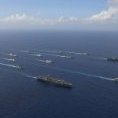Thailand woos India: time for an Act West policy
-
Recently Browsing 0 members
- No registered users viewing this page.
-
Topics
-
-
Popular Contributors
-
-
Latest posts...
-
1
Report Ex-Bangkok MP Jailed as Supreme Court Upholds Defamation Conviction
😄🤪😀😂😊🙃🙂 😄🤪😀😂😊🙃🙂 😄🤪😀😂😊🙃🙂 😄🤪😀😂😊🙃🙂 😄🤪😀😂😊🙃🙂 😄🤪😀😂😊🙃🙂 😄🤪😀😂😊🙃🙂 😄🤪😀😂😊🙃🙂 😄🤪😀😂😊🙃🙂 😄🤪😀😂😊🙃🙂 😄🤪😀😂😊🙃🙂 -
24
Entertainment Global Casino Giants Eye Bangkok for Billion-Dollar Resorts
From the OP, they need verification of earnings, and 5000 B . without exclusion , means what ? My excuse if I read wrong. -
3
Dark-Money Network Funneled Millions Into 'No Kings' Nationwide Color Revolution Operation
To help the Anti American insurgents ! The dems& their far left PAID NGO’s are the New King! Keep those threads coming OP, Expose the lefts oligarchy! -
78
Report German Drug Dealer Arrested in Major Pattaya Sting Operation
I guess you missed the part where I was talking about bang Kwan......Not lounge chairs. -
128
-
128
Is paying the bar to take a girl out of the bar justified? Or just a scam?
Technically its human trafficking by the bar, prostitution by the girl, and paying for prostitution / to the pimp by the guy. All breaking the law.
-
-
Popular in The Pub




.thumb.jpeg.d2d19a66404642fd9ff62d6262fd153e.jpeg)


Recommended Posts
Create an account or sign in to comment
You need to be a member in order to leave a comment
Create an account
Sign up for a new account in our community. It's easy!
Register a new accountSign in
Already have an account? Sign in here.
Sign In Now